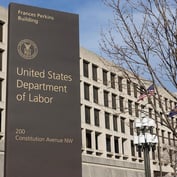What You Need to Know
- The SEC will prioritize examinations of several significant focus areas that pose unique or emerging risks to investors or the markets.
- ESG/sustainable investments have become a sensible focus area for a mock exam to measure alignment between ESG investing and compliance.
- Mock exams draw on the experience of RIA firms’ chief compliance officers and/or third-party consultants, many of whom are former SEC staff members.
Over the past several years, the Securities and Exchange Commission has steadily increased its examinations of RIAs In fact, in the 2021 fiscal year, the Commission conducted 2,251 exams on 16% of RIAs, up from 10% in fiscal year 2015.
Meanwhile, the agency has introduced a more rigorous regulatory agenda this year that will prioritize examinations of several significant focus areas that pose unique or emerging risks to investors or the markets. These focus areas include private funds and their advisors; environmental, social and governance investing; standards of conduct; information security and operational resiliency; and emerging technologies and crypto-assets.
RIA examinations will continue to assess their compliance programs in core risk areas. Typically, the SEC prioritizes firms that have not yet been examined, including those recently registered or those which have not been examined in a number of years.
In response to investor demand, advisors have expanded their various approaches to ESG investing and increased the number of product offerings across multiple asset classes.
Combining these factors with a lack of standardized and precise ESG definitions, and the fact that this is a developing category, may present heightened compliance risks as highlighted in the SEC’s Risk Alert last year. These issues make ESG/sustainable investments a sensible focus area for a mock exam to measure alignment between ESG investing and compliance.
Cybersecurity breaches, including social engineering fraud and ransomware, also are presenting increasing compliance challenges.
In addition, combined civil and standalone SEC enforcement actions against Registered Advisors/Investment Companies are the second highest among 13 total reported categories, increasing to 28% of total actions in fiscal year 2021, from 23% in fiscal year 2020.








 May 24, 2022 at 09:44 AM
May 24, 2022 at 09:44 AM












 Copyright © 2024 ALM Global, LLC. All Rights Reserved.
Copyright © 2024 ALM Global, LLC. All Rights Reserved.